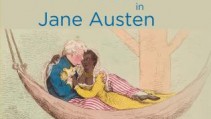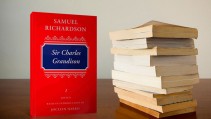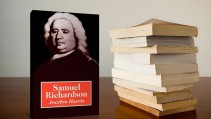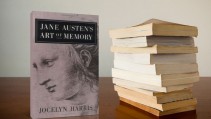To commemorate the 200th anniversary of Jane Austen’s death, the Times Literary Supplement asked me, “What does Jane Austen mean to you?” On July 19, 2017, I was delighted to be in the company of––among others––Melvyn Bragg, Paula Byrne, Amit Chaudhuri, Deirdre Le Faye, Claire Harman, Claudia L. Johnson, Devoney Looser, Pat Rogers, Patrica Rozema, Peter Sabor, and Kathryn Sutherland. Here’s what I wrote:
Even after all these years, Jane Austen remains inexhaustible. Teaching cannot wither her, nor research stale her infinite variety. I especially admire her Shakespearean trick of breaking tension by comedy, as in Persuasion, where Anne Elliot feels someone lifting the child off her back – someone! – and Charles Hayter, grumpy that Captain Wentworth has succeeded where he could not, bumbles into her confusion and agitation. I share Anne’s anxiety about the captain; I experience the overwhelming sensation of pleasure and pain that Austen calls “exquisite.” Like Hermione in The Winter’s Tale, Anne comes back to life. But eight-and-a-half years of happiness have been lost, as Wentworth spells out so precisely in his proposal.
To try and figure out how she did it, I’ve traced Austen’s creative borrowings, followed her revisions to the ending of Persuasion, and explored its contexts, its attack on rank, and its meditations on mortality and restoration. Now in Satire, Celebrity, and Politics in Jane Austen, the quest continues, for here I identify the real-life targets of her savage indignation, including the Prince of Wales, the fellow-courtiers of Fanny Burney, and the slave trade. No creep-mouse she, but a woman who was worldly, courageous and modern.







